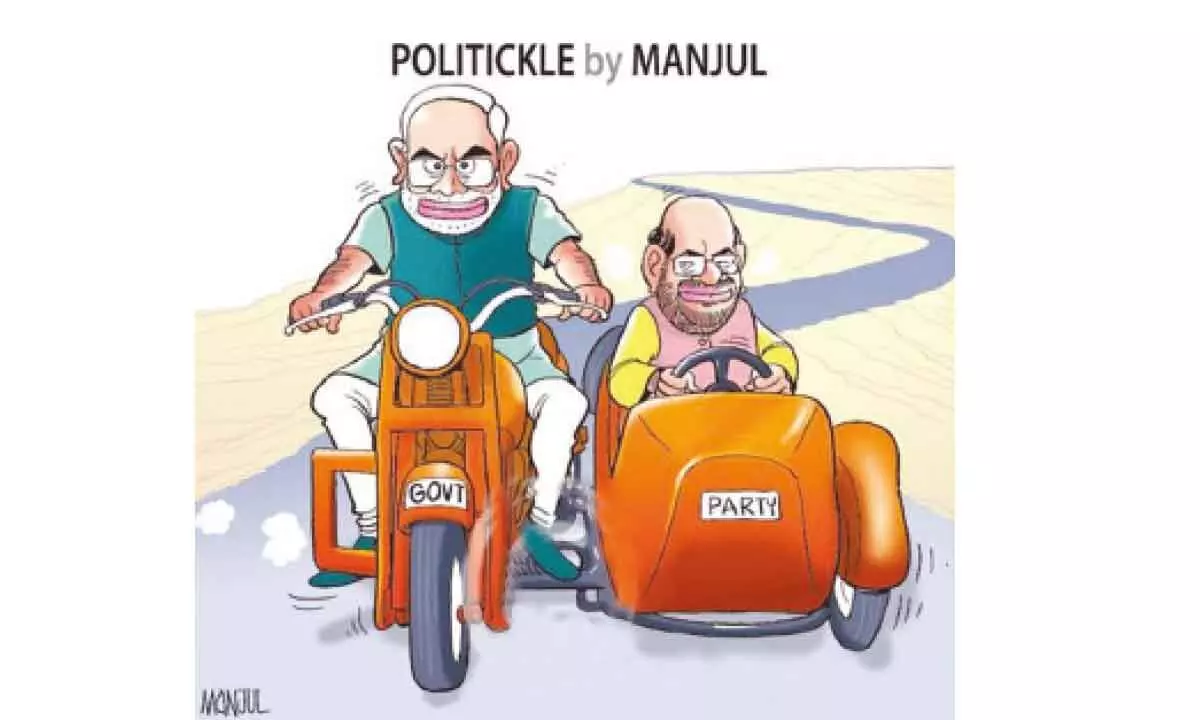Jobs a key issue for voters: CSDS

International Labour Organisation revealed that more than 80 per cent of India’s unemployed workforce comprises its youth. It had also said that the proportion of young individuals with secondary education or higher, among the total unemployed youth surged from 35.2 per cent in 2000 to 65.7 per cent in 2022
New Delhi: Ahead of the upcoming Lok Sabha elections, the foremost concerns for voters in India are rising prices and unemployment, as revealed in a pre-poll survey by the Centre for Study of Developing Societies (CSDS), according to Business Standard report.
Specifically, 62 per cent of respondents across various demographics, including villages, towns, and cities indicated that securing employment has become increasingly challenging. The CSDS report showed that 65 per cent of men shared this sentiment, while the number was lower among women at 59 per cent. Only 12 percent of respondents opined that job opportunities had increased.
Regarding difficulties in job accessibility, 67 per cent of Muslims, 63 per cent of Hindus from Other Backward Classes (OBCs), and 59 per cent of Scheduled Tribes (ST) conveyed similar concerns, the report revealed.
Additionally, the survey unveiled that 57 per cent of respondents from upper castes found job acquisition difficult, with only 17 per cent perceiving it as easier.
On the question of accountability of lack of job opportunities, 21 per cent held the Centre accountable, 17 per cent attributed it to state governments, and 57 per cent believed both entities shared responsibility.
The CSDS-Lokniti poll comes a few weeks after a report by the International Labour Organisation (ILO) which revealed that more than 80 per cent of India’s unemployed workforce comprises its youth. It had also said that the proportion of young individuals with secondary education or higher, among the total unemployed youth surged from 35.2 per cent in 2000 to 65.7 per cent in 2022.
The highest youth unemployment rates were observed among those with graduate degrees – a trend that is impacting women particularly. In 2022, women not engaged in employment, education, or training constituted nearly five times higher than the proportion of their male counterparts (at 48.4 per cent versus 9.8 per cent), accounting for around 95 per cent of the total youth population in this category.
Similarly, for the issue of inflation, 26 per cent assigned blame to the Centre, 12 per cent to the states, and 56 per cent to both, the CSDS poll revealed.
A vast majority of voters expressed a severe impact on their finances, with 71 per cent noting an increase in commodity prices. The rising costs affected primarily the economically disadvantaged (76 per cent), Muslims (76 per cent), and Scheduled Castes (75 per cent), the poll claimed.
In terms of overall quality of life, 48 per cent said that it has improved, while 35 per cent observed a deterioration over the past five years. Merely 22 per cent reported being able to save money from their household income, while 36 per cent claimed to fulfil their needs but were unable to save. Fifty-five per cent of respondents indicated an increase in corruption over the past five years, with 25 per cent attributing it to the Centre and 16 per cent to the states.
The Lokniti-CSDS Pre-Poll Survey 2024 compiled responses from 10,019 individuals across 19 states. The survey was conducted in 400 polling stations (PSs) spread across 100 Assembly Constituencies (ACs) in 100 Parliamentary Constituencies (PCs).














